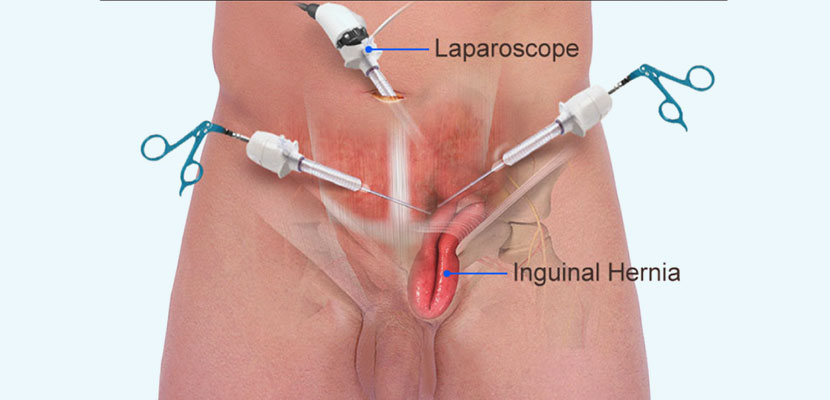




Department: General Surgery
Estimated Cost : $1,500 - $3,000
Hernia repair surgery is a crucial procedure designed to treat hernias, which occur when an organ or fatty tissue pushes through a weakened area in the surrounding muscle or connective tissue. Hernias can cause discomfort, pain, and in severe cases, life-threatening complications.
India has become a global hub for hernia repair surgery, offering a combination of advanced medical infrastructure, experienced surgeons, and cost-effective treatment plans. Whether you are looking for traditional open surgery or modern laparoscopic techniques, Indian hospitals provide tailored options to suit every patient’s needs.
With decades of expertise in hernia treatment, Indian surgeons ensure high success rates and speedy recoveries. Furthermore, medical tourism facilitators like Healtour Solutions streamline the entire process, providing international patients with access to top hospitals, travel assistance, and end-to-end support.
Choosing India for hernia repair surgery comes with several advantages:
1. World-Class Surgeons:
India is home to some of the most skilled and experienced surgeons who specialize in hernia repairs, including minimally invasive and robotic-assisted techniques. These surgeons are often trained internationally and keep up with the latest advancements in medical science.
2. Advanced Technology:
Indian hospitals are equipped with cutting-edge technology, including high-definition laparoscopic tools and robotic surgery systems. This ensures precise procedures, reduced complications, and faster recovery times.
3. Affordable Costs:
The cost of hernia repair surgery in India is up to 70–80% lower than in Western countries like the USA or UK. This affordability makes India a preferred destination for medical tourists without compromising on quality.
4. Comprehensive Care:
Hospitals in India offer personalized care, multilingual support, and services tailored to the needs of international patients. From the initial consultation to post-operative care, every step is handled professionally.
5. Seamless Medical Tourism Services:
With trusted facilitators like Healtour Solutions, patients can enjoy a smooth medical journey that includes visa assistance, airport pickups, accommodation, and hospital appointments.
Hernias vary in complexity, and their treatment depends on the type and severity of the condition. Indian hospitals offer the following types of hernia repair surgeries:
1. Open Hernia Repair Surgery:
Advantages:
Disadvantages:
2. Laparoscopic Hernia Repair Surgery:
Advantages:
Disadvantages:
3. Robotic-Assisted Hernia Surgery:
Advantages:
Disadvantages:
Hernias can occur in various parts of the body. Below are the most common types treated in Indian hospitals:
1. Inguinal Hernia:
2. Umbilical Hernia:
3. Incisional Hernia:
4. Femoral Hernia:
5. Hiatal Hernia:
1. Pre-Operative Preparation:
2. Surgical Procedure:
3. Post-Operative Care:
Laparoscopic and robotic techniques offer significant advantages:
Hernia surgery in India is affordable, making it accessible to international patients.
Estimated Costs:
Factors affecting cost include:
1. Trusted Expertise:
Healtour Solutions connects patients with top surgeons and hospitals specializing in hernia repair surgery.
2. Affordable Packages:
Our packages include surgery, hospital stay, travel, and accommodation, ensuring a cost-effective solution.
3. End-to-End Support:
From visa assistance to follow-ups, Healtour Solutions ensures a seamless experience.
4. Multilingual Assistance:
Language is never a barrier with our multilingual coordinators.
1. How long does recovery take after hernia surgery?
Recovery varies: 1–2 weeks for laparoscopic surgery and 4–6 weeks for open surgery.
2. Is hernia repair surgery safe?
Yes, with experienced surgeons and advanced techniques, hernia surgery is safe and effective.
3. Can hernia surgery be done without using mesh?
In some cases, hernias can be repaired without mesh, but mesh reduces the risk of recurrence.
4. What are the risks of leaving a hernia untreated?
Untreated hernias can lead to complications like strangulation, causing severe pain and requiring emergency surgery.
5. Is hernia surgery covered by insurance?
Most health insurance plans cover hernia surgery. Verify with your provider.
6. Can hernias recur after surgery?
While rare, hernias can recur if not properly repaired. Choosing the right surgical technique reduces this risk.
7. What are the signs that I need hernia surgery?
Severe pain, a bulging lump, and inability to push the hernia back in can indicate that surgery is necessary.
8. Will I need a hospital stay after surgery?
Laparoscopic surgery typically allows same-day discharge, while open surgery may require 1–2 days of hospital stay.
9. What are the post-operative restrictions after hernia surgery?
Avoid lifting heavy objects for 4–6 weeks and follow the prescribed diet to aid recovery.
10. What is the success rate of hernia repair surgery?
The success rate for hernia surgery is typically over 90%, with minimal complications when performed by skilled surgeons.
Hernia repair surgery in India offers a combination of advanced techniques, skilled surgeons, and cost-effective solutions. With minimally invasive options like laparoscopic and robotic-assisted surgery, patients can expect faster recovery and excellent outcomes.
Contact Healtour Solutions today to start your journey toward a hernia-free life!
@2025 Healtour Solutions Pvt Ltd. All Rights Reserved.